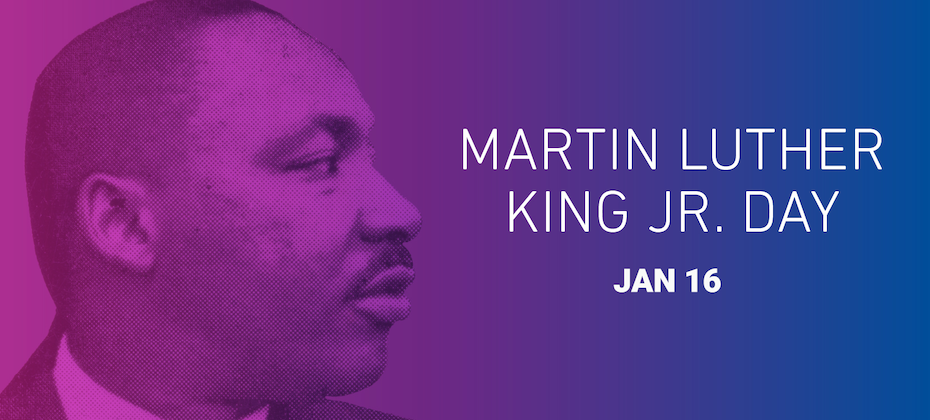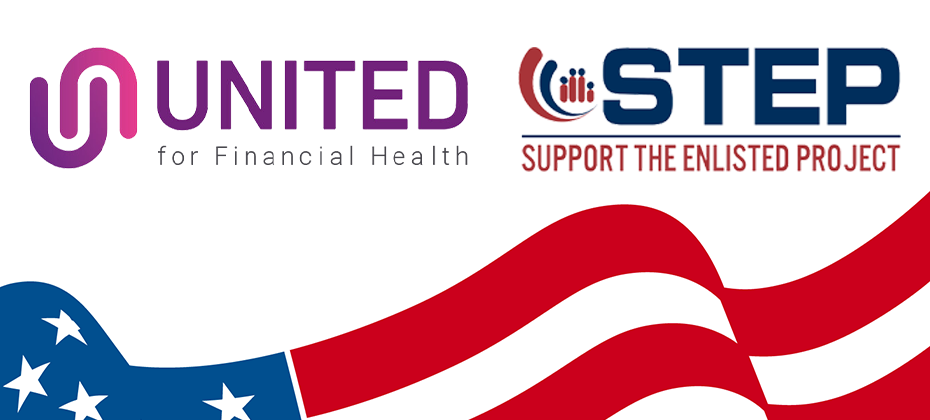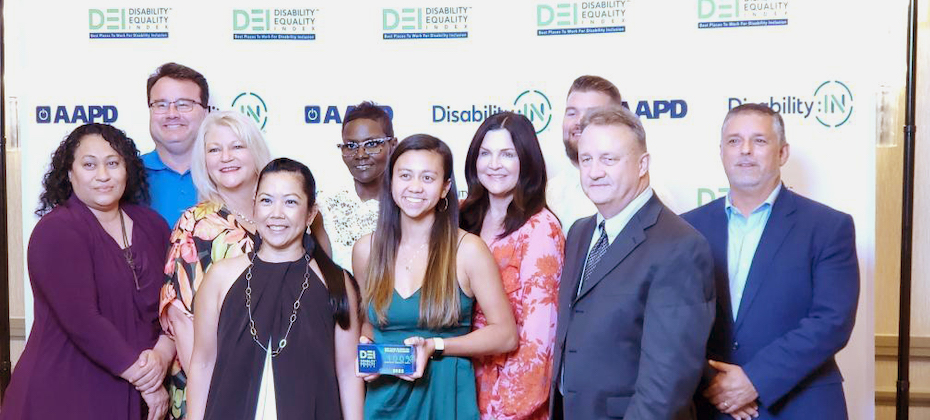NA – North America
News about Experian North America:

Today we released our annual Future of Fraud Forecast to help consumers and businesses stay one step ahead of emerging fraud trends and scams. Here’s what we expect in 2023: Fake texts from the boss: Given the prevalence of remote work, Experian predicts there’ll be a sharp rise in employer text fraud. This occurs when the “boss” texts the employee to buy gift cards using a bogus reason, and then asks the employee to email the gift card numbers and codes. Fraudsters then use the gift cards, leaving the employee and/or the company with the expense.Beware of fake job postings and mule schemes: Amid uncertain economic conditions, Experian predicts fraudsters will create fake remote job postings, specifically designed to lure consumers into applying for the job and providing private details like a social security number and date of birth on a fake employment application. The job never materializes, and the fraudsters use the information provided to commit identity theft. Experian also predicts that consumers could fall prey to mule recruiting schemes. This happens when people sign up for work from home jobs and unintentionally act as a re-shipper of stolen goods or help move money through their personal bank accounts on behalf of fraudsters.Frankenstein shoppers spell trouble for retailers: Synthetic identity fraud is the fastest growing financial crime in the United States, according to The Federal Reserve. This type of fraud involves a fraudster creating a synthetic or “Frankenstein” identity by combining real and false information and opening and building up lines of credit, eventually maxing out their credit limit and never paying it back. Experian predicts a new version of this fraud could result in major losses for retailers in the coming year. Fraudsters can create online shopper profiles using synthetic identities so that the fake shopper’s legitimacy is created to outsmart retailers’ fraud controls. As the shopper’s profile matures, criminals add stolen payment cards to the accounts. When the fraud eventually occurs, a single synthetic identity will have multiple credit lines to burn through across retailers.Social media shopping fraud: Experian predicts in-app social commerce fraud could result in millions of dollars in losses. These apps are designed to make shopping easy, intuitive and compelling for consumers to make purchases without leaving the app. This means legitimate brands are racing to make social commerce a part of their sales strategy. However, social commerce currently has very few identity verification and fraud detection controls in place, making the retailers that sell on these platforms easy targets for a surge in fraudulent purchases.Peer-to-peer payment problems: Consumers love the convenience of peer-to-peer payments and usage continues to grow. Fraudsters also love peer-to-peer payment methods because they’re an instantaneous and irreversible way to move money, enabling fraudsters to get cash with less work and more profit. Experian predicts fraudsters will gain even more unauthorized access to peer-to-peer payments by using multiple social engineering techniques. Consumers will be duped into buying fake items, sending the money to fraudsters and then never receiving their orders. They’ll also be tricked into giving their account credentials, enabling fraudsters to send cash to themselves. Experian is at the forefront of fraud prevention and identity verification. We offer a full suite of automated tools that harness data and analytics to prevent fraud and mitigate losses. Learn more about Experian’s fraud prevention tools here.

Dr. Martin Luther King, Jr. spoke often about “the beloved community.” To be of service to all and unite us in the act of giving back. This encapsulates what Experian stands for: to create a better tomorrow for all. We’re proud that today, across Experian North America, our teammates will be participating in volunteer opportunities in-person and virtually to address needs in their communities; everything from career development, recording audio books for children, and creating Martin Luther King, Jr. fact cards in braille. One project that we’re particularly looking forward to is helping to design free budget templates for consumers in underserved communities. Financial literacy and equitable access to financial tools and resources lead to economic empowerment. We’ve been able to bring our message to live events like the National Urban League, and support young athletes and their families at the Allen Iverson Roundball Classic as its exclusive financial literacy partner. To further our support of Dr. King’s mission, Experian has also made a donation to the King Center for Non-violent Social Change. We’re proud Experian supports today’s National Day of Service and hope you’re able to make an impact in your communities on this day, and every day.

We’re thrilled to announce that Experian North America has been recognized as a Top Workplace by the Orange County Register for the 10th consecutive year, with an additional “Excellence Award” for our work / life flexibility. This honor is a testament to our innovative employee culture, and keeping connected, engaged and energized as a hybrid workforce. This Orange County Register award recognition is based on the results of confidential employee surveys that assess the performance of hundreds of successful companies throughout our community. We recognize that our employees are the driving force behind our decade-long achievement as a Top Workplace. Our talented team is dedicated to both their own growth and pushing us forward, and we’re grateful for all they do to make Experian such a great place to work. Employee collaboration from our hackathons and company-wide product overviews have sparked remarkable innovations, such as Experian Go and Experian Boost. These products are especially helpful to members of diverse backgrounds and low-income households. Our Mental Health First-Aiders program is another example of employees coming together to support each other. Our commitment to creating a supportive, purpose-driven culture is reflected in multiple awards from authoritative sources such as Great Places to Work. Not only was Experian listed among the "Best Workplaces for Parents," we’re also honored to be included on their list of "Best Workplaces for Millennials." Additionally, we’re passionate about giving back to the communities in which we work and live. We take pride in our company’s numerous contributions to organizations focused on the well-being of people from a diverse array of backgrounds. From creating the Experian Volunteer Leadership Network to our financial support of community organizations such as Ascend, National Urban league, HomeFree-USA and the Pathways Forward Initiative, we’re dedicated to helping people in need. We believe all these factors have led to our success as a company and a desirable place for people to build thriving careers. We’re honored that leading organizations like the Orange County Register and Great Places to Work recognize our efforts to make the world a better place. We want to make sure that we continue to innovate; that our products and services are first-best-and-only in their respective industries; and that we take very good care of our constituents.

Home ownership has been found to be one of the greatest drivers of generational wealth, but the dream of owning a home can seem out of reach for millions of Americans. At Experian Mortgage, we believe our commitment to diversity, equity and inclusion, and leveraging the power of data, analytics and technology creates a better tomorrow for all. Our team is 100% committed to helping expand homeownership opportunities to populations traditionally left out of the market. For me personally, diversity, equity and inclusion – in all regards – is a personal passion. That’s why it’s especially thrilling and humbling to receive the Mortgage Bankers Association (MBA) 2022 Residential Diversity, Equity and Inclusion (DEI) Leadership Award in the Market Outreach Strategies Non-lender category. Diversity, equity and inclusion is more than just a program for us. It drives our company’s mission of financial inclusion. We are proud to partner with nonprofit organizations including HomeFree-USA, the Urban Institute, UnidosUS and the National Urban League to break down barriers to homeownership through financial and credit education. Through our United for Financial Health program, we established the Home Preservation Grant to assist Black and African American homeowners at risk of losing their homes due to the negative impact of COVID-19. To date, homeowners in Atlanta, Chicago and the greater Washington, D.C. areas have benefitted. As a member of the MBA, Experian enthusiastically signed the Home for All Pledge, furthering its commitment to be a champion for change in addressing the barriers to sustainable housing for persons and communities of color. Additionally, several members of the Experian Mortgage team participate in the Housing Affordability Convergence in support of MBA’s initiative to facilitate new solutions to the nation’s rental and housing affordability challenges. For Experian Mortgage to be recognized by the MBA for our market outreach efforts is tremendously rewarding. It helps confirm we’re on the right track and we still have more to do. We look forward to providing partnership and support to clients and the industry to join us in our mission of financial inclusion. Click here to learn more about our commitment to diversity, equity and inclusion.

For all of the ways money – and access to it – affects our lives, it’s unfortunate that it is not discussed regularly with young people. Sadly, when it is discussed, it’s often in response to highly emotional financial stress or difficulty rather than as a positive learning opportunity. Establishing a positive, fact-driven relationship with money early in life can be a critical factor in future success. Equitable access to financial tools and resources to create a better tomorrow can help everyone achieve their life’s goals. That’s why we’re proud to announce the launch of the Center for Financial Advancement® (CFA) Credit Academy. CFA is a key initiative of HomeFree-USA, and we’ve been partnering with the organization to provide complementary training to their housing counselors on financial and credit education information and resources. This new six-month program is for 250 scholars from 14 Historically Black Colleges and Universities (HBCUs). My colleagues on Experian’s Credit Education team are leading the program to help scholars gain an understanding of credit and its importance. The hope is they’ll become knowledge ambassadors for their peers, family and their communities. Experian research shows there are 28 million US consumers who are unable to participate in the mainstream financial ecosystem today because they don’t have a financial identity. Credit invisibility more frequently impacts underserved communities with 26% of Hispanic consumers and 28% of Black consumers unscoreable or invisible compared to 16% of White and Asian consumers. That can make homeownership, the greatest driver of generational wealth, an even bigger challenge for underserved communities. Ensuring these students are aware, informed and visible within the credit ecosystem will help them access more equitable lending when they’re ready to take steps to buy a car, own a home, and build generational wealth. In addition to live sessions and self-paced content, the CFA Credit Academy culminates with a hackathon competition in April, challenging all students to form teams of four at participating HBCUs to build the next best credit education program for their peers. The winning team will earn a $40,000 scholarship, sponsored by Experian. We can’t wait to see what the scholars come up with, and we look forward to sharing their ideas. To learn more about Experian’s work in diverse communities: visit www.experian.com/diversity.

It continues to astonish and amaze us that the majority of the men and women who enlist in our nation’s military bring immense commitment but very little money. When you’re an E5 or lower military rank with a family living in Southern California, the cost of living in this region can be financially challenging. Delilah Moreno Denny remembers earning $13,000 a year during his first year in the Army and the “pass the hat” exercise during morning formation when someone in the unit had a new baby. Delilah served in the Army reserve while pregnant, and her unit gifted her a basket full of diapers. As co-executive sponsors of the Military, Veterans, and Patriots (MVP) Employee Resource Group at Experian, we sought to continue that kindness and found Support The Enlisted Project (STEP). Our members have organized virtual baby supply drives and helped at the warehouse. Denny Galiano STEP fills the gap for enlisted members in many ways. We’re proud that Experian is expanding our partnership by bolstering its Emergency Financial Assistance (EFA) program through our United for Financial Health initiative. EFA helps soldiers, sailors, airmen and marines learn about financial literacy and credit. Many of our enlisted members join the military just out of high school without basic financial education about credit, balancing a checkbook, saving for the future, or managing debt. EFA helps military members move from financial crisis to financial self-sufficiency so that they can have a more stable future during their service and when they become veterans. As supporters of STEP and its mission, and as veterans, we’re excited that our relationship is evolving from providing basic needs to helping create a better tomorrow for our nation’s military service members. It is our honor to continue serving our U.S. Armed Forces community by providing resources that will lead to financial empowerment.

I recently came across a quote that said, “The world you see is created by what you focus on.” As I look back on my last 16 years with Experian, I see a lot of truth in this. While Experian has historically been recognized as a business-to-business organization, over the last several years, we’ve had a transformational shift in focus that’s fundamentally changed our business. This shift has made our world look a lot different than it used to. Today, consumers are at the center of everything we do. They’re the driving force behind our innovation and growth. Every day, millions of consumers come to Experian looking for ways to improve their financial health and we’ve been building one of the largest global member bases. These direct relationships put us in a unique position. We can listen to consumers to hone our focus – and we do. Just like in everyday relationships, listening builds trust and respect. It helps us understand what consumers want and allows us to innovate to meet them where they are on their financial journey. In 2019, we heard consumers’ call for more control of their data and responded with Experian Boost®[1]– a first-of-its-kind feature that allows consumers to contribute information directly to their Experian credit file. To date, we’ve helped 8.6 million consumers instantly improve their FICO® Scores[2] with an average increase of 13 points. Since launch, we’ve continued to listen and enhance the feature to maximize the number of consumers who can benefit. Shortly after we brought Experian Boost to market, we wanted to ensure consumers who paid their monthly telecom and utility bills from their savings or credit cards could benefit alongside those who paid these reoccurring bills through their checking account, and we did. Against the backdrop of the COVID-19 pandemic, at a time when television streaming had skyrocketed, we wanted to ensure consumers who subscribed to video streaming services, including Netflix®, Hulu™, HBO Max™, Disney+™ and others, could use these monthly payments to build their credit histories, and we did. We regularly connect new streaming service partners to Experian Boost. Most recently, consumers who subscribe to Paramount+, Peacock, Showtime® and ESPN+ can also contribute their on-time bill payments directly to their Experian credit file through Experian Boost. Earlier this year we introduced Experian Go™ - a free, first-of-its-kind program to help “credit invisibles,” or people with no credit history, begin building credit. Within minutes, credit invisibles who enroll in the program can have an authenticated Experian credit report, tradelines and a credit history by using Experian Boost and instant access to financial offers through Experian Go. Since launch, more than 84,000 consumers have established an Experian credit report through Experian Go and become visible to potential lenders. As a next step, today we’ve announced a new beta release of Experian Boost that allows consumers to contribute qualifying, “positive” residential rent payments directly to their Experian credit file. This capability makes Experian Boost the only feature that can instantly improve a consumer’s FICO® Score 8through positive rent payments at no cost. This is the next step in our commitment to helping consumers get the credit they deserve. With the beta release, consumers who rent from over 1,500 of some of the largest U.S.-based property management companies, and who pay their rent directly to their property management company or through platforms like AppFolio Property Management, Buildium®, Yardi® Breeze and Zillow® Rental Manager, can add qualifying positive rent payments to their Experian credit file through Experian Boost. Based on preliminary analysis[3] highlighting the potential impact of positive residential rent payment reporting through Experian Boost, we estimate 66% of consumers will see an instant increase to their FICO® Score 8, a FICO® Score 8 improvement of nearly 10 points on average for those who receive a boost and are new to using Experian Boost. And we’re not done yet. To ensure more renters can benefit, we’ll continue to add new property management companies over time. In later phases, we’ll update the feature further to add individual landlords and smaller property management companies over time. I’m proud of what we’ve accomplished so far and, as we look ahead, I’m excited for the ways we can help consumers that are yet to come. With our focus on consumers and our ability to listen and innovate, I believe we’ve just scratched the surface in terms of our capacity to help bring financial power to all. [1] Results will vary. Not all payments are boost-eligible. Some users may not receive an improved score or approval odds. Not all lenders use Experian credit files, and not all lenders use scores impacted by Experian Boost®. Learn more. [2] Credit score calculated based on FICO® Score 8 model. Your lender or insurer may use a different FICO® Score than FICO® Score 8, or another type of credit score altogether. Learn more. [3] Analysis completed using FICO® Score 8 with Experian data. Experian and the Experian trademarks used herein are trademarks or registered trademarks of Experian and its affiliates. The use of any other trade name, copyright, or trademark is for identification and reference purposes only and does not imply any association with the copyright or trademark holder of their product or brand. Other product and company names mentioned herein are the property of their respective owners. Licenses and Disclosures.

In my role as Chief Sustainability Officer at Experian, I often hear from communities that feel that they’re not seen or heard. That they’re marginalized. I’m proud that our United for Financial Health (UFH) program can be a global catalyst towards financial inclusion. This is the kind of work UFH is supporting with two new partners: Born This Way Foundation (BTWF) and True Colors United. Founded by Lady Gaga and her mother Cynthia Germanotta, Born This Way Foundation supports youth mental health and created Channel Kindness, a digital storytelling platform. Experian is proud to support an expansion of Channel Kindness, which will be a safe space for young people to reflect on significant financial days throughout the year such as college graduation, tax day and a #BeKind21 Campaign event focusing on the role kindness plays in a person’s financial wellness. True Colors United was founded by Cyndi Lauper, and aims to end homelessness among LGBTQ+ youth. We will collaborate with them to create financial literacy resources to help this “invisible” community overcome barriers to fair and equitable access to credit and financial tools. These new partnerships are just a couple examples of our support for the LGBTQ+ community. Earlier this year, we achieved a 100% rating on the Corporate Equality Index from the Human Rights Campaign Foundation in the U.S., making Experian a Best Place to Work for LGBTQ Equality for the fourth consecutive year. We also received a Silver Award from Stonewall for our commitment to inclusion of LGBTQ people in the workplace. We provide a process to assist trans and non-binary consumers with name changes to their Experian credit reports. During Pride Month, our weekly Twitter #Creditchat addressed important financial topics such as Financial Tips for Same Sex Couples and the LGBTQ+ Community. We look forward to sharing stories from Channel Kindness and the resources from True Colors United. To learn more about Experian’s commitment to financial empowerment for all, check out The Power of You: 2022 Diversity, Equity and Inclusion Report.

During Disability Pride Month, we are especially proud and hopeful by our most recent honor: Experian earned a score of 100 out of a possible 100 in the Disability Equality Index® (DEI). The DEI is the world’s most comprehensive benchmarking tool for the Fortune 1000 and Am Law 2001 to measure disability workplace inclusion against competitors. Several of our colleagues were on hand at the recent 2022 Disabilty:IN Conference to pick up our award. We improved from our score of 90 last year, and are considered a Best Workplace for Disability Inclusion. We’re honored to partner with two of the community’s leading organizations, Disability:IN and the National Disability Institute towards our commitment to financial empowerment for people with disabilities. We’re hosting conversations like this one to raise awareness of the barriers and explore solutions to financial inclusion. Experian is powering the credit resource page of the Financial Resilience Center so consumers have information at their fingertips. People with disabilities represent over one billion people across the globe. As one of our colleagues who represented Experian on a panel about innovation at the 2022 Disability:IN Conference explains, disability is a natural part of the human experience, and it crosses lines of age, ethnicity, gender, gender identity, race, sexual orientation, socioeconomic status and religion. It’s in that spirit that we held a Global Hackathon, challenging our colleagues to create future products and services that can further the mission of financial inclusion and equity for communities worldwide. As co-executive sponsors of Experian’s ASPIRE employee resource group, which advocates for teammates with disabilities, we’re proud to have our progress acknowledged. And we’re hopeful because while we know the work of inclusion will never be done, the Disability Equality Index indicates we’re evolving in the right direction. Learn more about Experian’s commitment to creating a better tomorrow for the communities in which we live and work in The Power of You: 2022 Diversity, Equity and Inclusion Report. Hear from Experian’s Roselyn M. about our culture of inclusion: